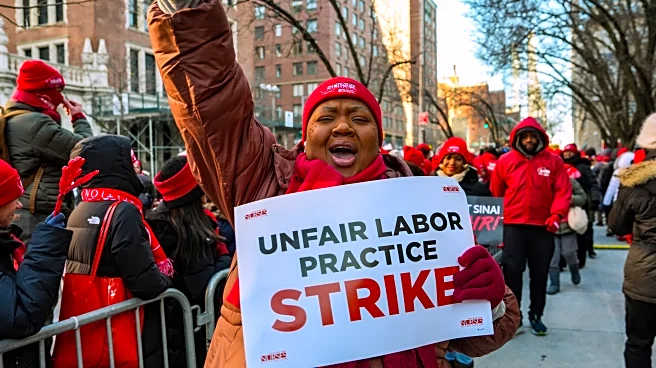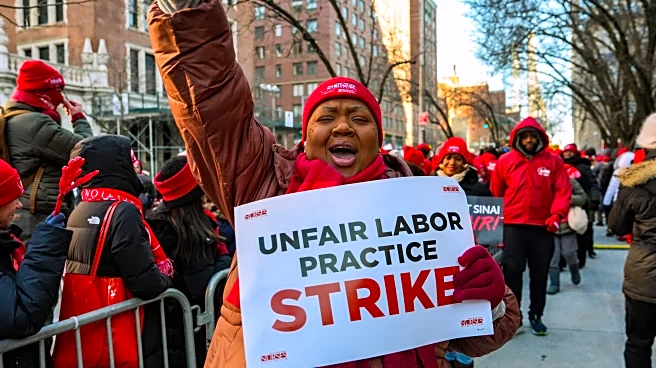Rapid Read • 7 min read
The Environmental Protection Agency (E.P.A.) has announced the termination of contracts with federal unions, including the American Federation of Government Employees and four other unions. This move is part of the Trump administration's broader initiative to end collective bargaining agreements across the federal government. The decision was communicated through an agency-wide email, indicating a significant shift in labor relations within the E.P.A. The agency, which began the year with over 16,000 employees, plans to reduce its workforce to approximately 12,000. This action follows a recent announcement by the Department of Veterans Affairs to remove labor protections for over 400,000 workers and an appeals court decision allowing President Trump's order to end collective bargaining agreements to proceed while legal challenges are ongoing.
AD
The cancellation of union contracts at the E.P.A. represents a critical development in federal labor relations, potentially affecting thousands of employees. This move aligns with the Trump administration's efforts to exert greater control over the federal workforce, which could lead to significant changes in employee rights and protections. The termination of these contracts may weaken the bargaining power of federal unions, impacting job security, working conditions, and employee benefits. The broader implications could extend to other federal agencies, setting a precedent for similar actions across the government. This development is likely to provoke strong reactions from labor unions and could lead to legal challenges and protests.
The termination of union contracts at the E.P.A. is expected to face opposition from labor unions and potentially lead to legal challenges. The affected unions may seek to negotiate new agreements or challenge the terminations in court. Additionally, the broader federal workforce may experience increased uncertainty regarding job security and labor rights. Political leaders and advocacy groups may also weigh in on the issue, potentially influencing future policy decisions. The outcome of ongoing legal challenges to President Trump's order to end collective bargaining agreements will be closely watched, as it could determine the future of labor relations within the federal government.
AD
More Stories You Might Enjoy












